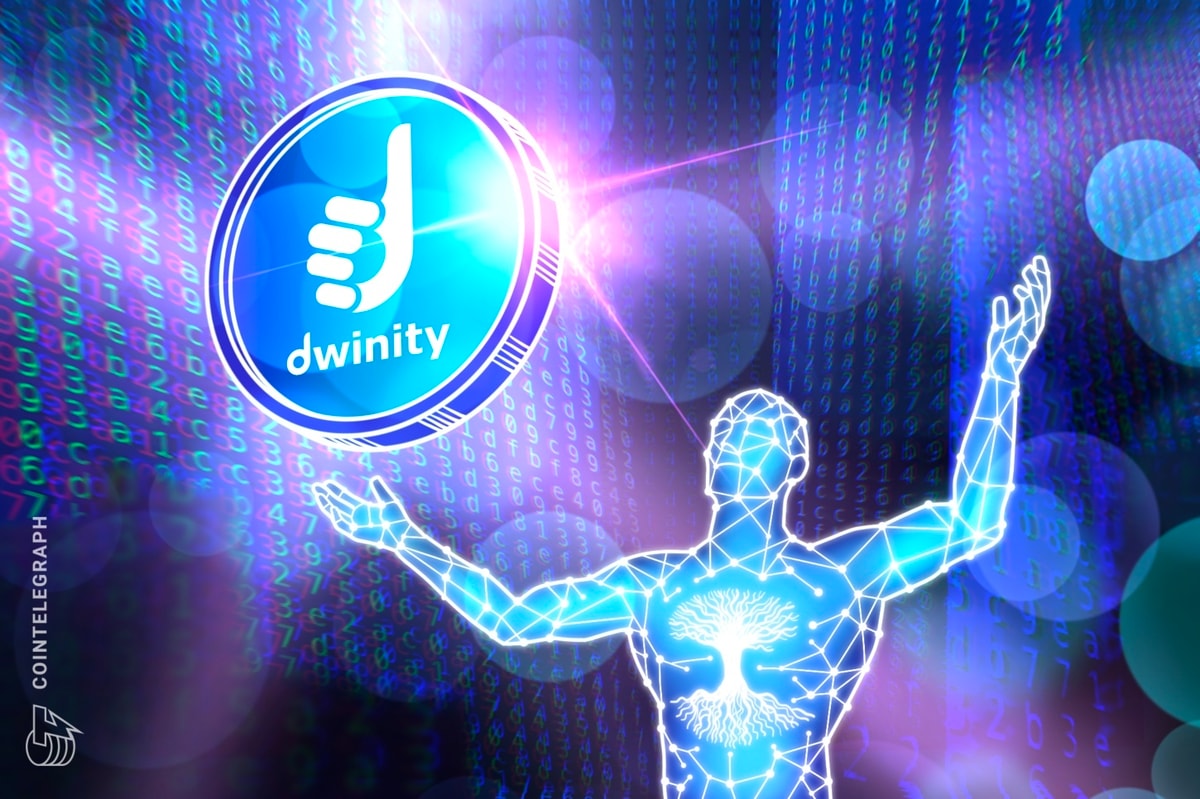Dwinity has launched Digital Twin Bubble Browser Data Explorer, a decentralized service allowing individuals to own, manage and potentially monetize their comprehensive personal data.
In the digital age, each click, swipe or search leaves a trail of data that shows people’s daily patterns. When analyzed in coherence, these data can easily create a “digital twin” of an individual. However, from health metrics collected by fitness trackers to online spending habits, such data often get scattered across different, isolated systems, preventing the creation of a holistic view.
As the information is kept in separate places, people rarely get the full benefit of their own data. Instead, large platforms often control these details, leaving regular users unable to make use of the knowledge hidden in their personal data. On top of that, the scattering of personal information across multiple platforms makes it difficult for individuals to gain a clear overview of their habits or make informed decisions about their well-being.
Personal data can be highly valuable, both for individuals and for broader applications, including when improving products or advancing medical research. By revealing connections and insights that may otherwise go unnoticed, data has the potential to enhance everyday life and support crucial innovations. As personal data often includes sensitive information, it is essential to maintain strict privacy and control, ensuring that it remains in the hands of the individual.
The main challenge is finding a model that keeps data ownership safe while also allowing people to unlock the potential value of their personal data. Advocates of a “decentralized digital twin” argue that consolidating one’s data in a single, secure platform allows it to become a form of personal capital, providing greater benefits for the user. However, many people either refrain from producing data due to privacy and ownership concerns in Web2 or simply give away their data without fully harnessing its potential.
Web3 meets digital twins
One project stepping up to address this challenge is Dwinity, a Web3 ecosystem for decentralized data and personalized AI. The platform recently launched its Digital Twin Bubble Browser Data Explorer in beta. Instead of scattering user data across separate platforms, the goal is to build one “digital twin” — a comprehensive digital reflection of an individual’s various records — owned entirely by the user.
While the concept of digital twins is nothing new, Dwinity’s decentralized infrastructure makes it an innovation to look out for. Rather than relying on large-scale platforms to store or process information, Dwinity uses a distributed infrastructure where data belongs solely to the user, guided by quantum-resistant encryption for security. This approach combines three major elements — data storage, artificial intelligence and user-friendly navigation — into a single ecosystem that doesn’t hinge on any one corporate server.
The Bubble Browser feature transforms each category of personal data into its own visual bubble, making it easier to see and manage. Since the platform is decentralized, users maintain direct control over what they share and with whom, whether it’s for personal analysis, anonymous research or monetization.
Turning personal data into community-driven capital
Dwinity treats data as a form of social capital. By holding the platform’s DWIN tokens, users participate in a broader network where companies pay to access anonymized data segments for better analytics or to enhance product design.
A portion of the proceeds reenters the system, impacting the token’s value and giving individuals a financial stake in the data economy. It’s a notable shift from conventional models, where user data flows silently to third parties. Here, each user decides exactly what is shared, ensuring transparent involvement in any transaction.
On a broader level, Dwinity also supports life-improving possibilities. In the medical realm, for instance, combining someone’s diet logs and health records can help them gain deeper insights into personal well-being, while aggregated anonymized data could advance research on serious conditions.
Discussing the potential of this technology, Chris Mangold, co-founder and chief financial officer of Dwinity, explained:
“Only a trusted, decentralized data and AI exchange ecosystem will unlock the full value of personal data and AI for those who should receive it — the owners of their private data.”
Having completed its seed round at a $75 million valuation — with $2.4 million raised to create a saleable prototype — Dwinity is preparing for a new round targeted at $3-8 million.
The team has set Jan. 31, 2025, as the date for a pre-sale of the full version of the Digital Twin Bubble Browser Data Explorer. Until then, anyone interested can join the beta here and help shape its functionality based on real-world usage.
🎯 Get Involved with Dwinity
— Dwinity (@dwinity_eco) December 28, 2024
Want to shape the future of decentralized data and AI? Here’s how:
🔗 Visit https://t.co/1X7XIKsbQj
☑️ Get whitelisted for our live prototype.
💻 Join hundreds of active users already testing, exploring, and giving valuable feedback.
✨Small… pic.twitter.com/Uxd3rJjs5H
According to its roadmap, Dwinity aims to roll out additional node functionalities by the second quarter of 2025 — labeled Data Control, Data Gold and Data Cash — which are expected to underpin storage, AI enhancements and data commerce.
Eventually, a mainnet launch will bring a reward system for data owners and node operators, with continued expansion through 2027 to incorporate gamification elements and a broader marketplace.
🛠️ Dwinity Roadmap: What’s Next?
— Dwinity (@dwinity_eco) December 26, 2024
🚀 Now:
•Prototype live at https://t.co/1X7XIKsbQj (sign up, get whitelisted).
•Store data decentrally on hardware nodes.
•Test the Bubble Browser for visualized, linked data insights.
📅 Next 3-6 Months:
•Commercialization of the prototype… pic.twitter.com/H6LvgOeQPW
Projects like Dwinity mark a shift toward a user-first data model, where decentralized ownership and secure AI replace traditional data-harvesting structures. By empowering individuals to manage, share and monetize their own information, such emerging solutions point to a more balanced and privacy-focused digital landscape.
Disclaimer. Cointelegraph does not endorse any content or product on this page. While we aim at providing you with all important information that we could obtain in this sponsored article, readers should do their own research before taking any actions related to the company and carry full responsibility for their decisions, nor can this article be considered as investment advice.











